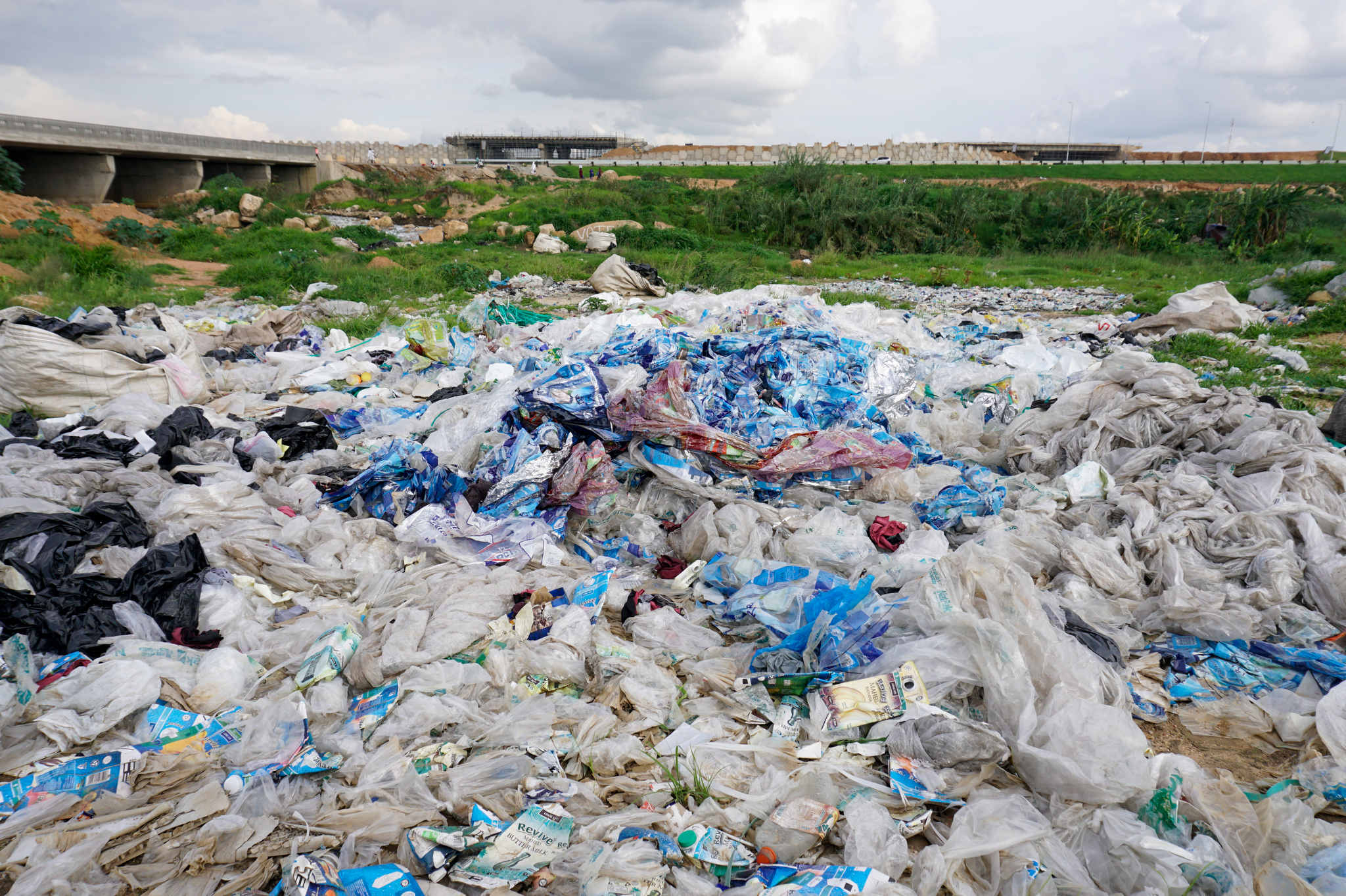At Mbare marketplace, one of Zimbabwe’s busiest trading hubs, plastic bags are everywhere. Vendors readily supply them to customers, who often dispose of them after a single use.
Many of these bags are imported from China or sourced from Chinese-owned companies within Zimbabwe, yet they fail to meet the country’s legal standards for plastic packaging.
“We know this plastic is banned, but we still sell it because it’s cheaper and in high demand,” admits Tichaona, a local vendor who sources his stock from a Chinese supplier in Harare. He withheld his last name due to fear of arrest.
Even some customers remain unaware that the plastic bags they use daily do not meet legal thickness requirements. An employee at Colour Maximal, a Chinese-owned plastic manufacturing firm in Harare, disclosed that their company knowingly produces substandard plastic.
“We understand the required quality, but we never manufacture it,” he said. “Customers are told these plastics meet the 30-micron rule, but that’s simply false.”
Zimbabwean regulations ban plastic packaging thinner than 30 microns, except for bread packaging, which must be at least 25 microns. However, cheap plastic imports from China, along with the dominance of Chinese-owned manufacturers, have flooded the market with illegal plastic.
Manufacturers exploit weak law enforcement to produce substandard plastics, worsening Zimbabwe’s pollution crisis.
“They prioritize profits over quality,” says Donald Marumbwe, a veteran in the plastic industry for over 30 years. “Since their products are cheaper, people buy in bulk without questioning the quality.”
A Global Press Journal investigation tested samples from Colour Maximal, revealing all were below the 30-micron requirement, with some as thin as 20 microns. Bread bags from Mbare marketplace were also tested—some measured as low as 6 microns, far below the legal standard.
Ultra-thin plastic bags do not decompose easily, instead breaking down into microplastics that threaten wildlife and human health. Thicker plastic is more likely to be reused and recycled, reducing environmental harm.
Despite this, manufacturers continue producing illegal plastic for profit. Tatenda Murwira, a manager at Colour Maximal, explains: “Thin plastic is cheaper to make. We prioritize saving materials and keeping prices competitive.”
Zimbabweans bear the cost of this pollution. Plastic waste accounts for 18% of the country’s total waste, clogging rivers, littering streets, and contributing to flash floods. Since 2010, over 5,000 animal deaths have been linked to plastic ingestion.
Amkela Sidange, from Zimbabwe’s Environmental Management Agency (EMA), says authorities conduct routine inspections and issue fines of up to $500 for violations.
However, Murwira disputes this, revealing that despite Colour Maximal’s decade-long operations, EMA officials have never inspected their factory.
“They visit, but they don’t check the quality of our products,” he admitted.
With lax enforcement and widespread non-compliance, Zimbabwe’s plastic crisis continues to spiral out of control.
Source | Global Press Journal

For comments, Feedback and Opinions do get in touch with our editor on WhatsApp: +44 7949 297606.
